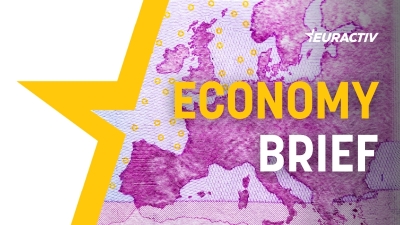Is Buildings Renovation Bad News for Households?

New rules for buildings approved this month can be lifechanging for millions of EU citizens. Contrary to some of the arguments heard ahead of agreement on the Energy Performance of Buildings Directive, the health, climate, financial and employment benefits of investing in building stock are all good news for Europeans.
Jan te Bos is Director General at Eurima.
Failure to adopt the EPBD would have meant accepting a status quo in which too many people still live in uncomfortable, poorly insulated homes, which they cannot afford to heat.
In 2022, the European Commission found that over 95 million people in the EU, almost 22 percent of the population, were at risk of poverty or social exclusion. That same year, the share of the EU population unable to keep their homes adequately warm increased from 6.9 percent to 9.3 percent. It would simply not have been OK to tolerate that situation.
Proper insulation makes it possible to reduce energy used for heating and cooling buildings, cutting CO2 emissions while creating a comfortable and healthy indoor environment. Energy efficient buildings renovation protects households during cold spells and ensures thermal comfort during heat waves.
Yes, warm and efficient buildings are an investment. Yes, renovation should be done properly. But the EPBD can bring about the changes we need for people and for the environment. The European Parliament saw this when it voted by 370 to 199 in favour of the proposal last month. European Governments on 12 April also said they understand.
We can help vulnerable citizens facing high energy bills, and we can break the link between European buildings and excessive energy consumption.
Because both these challenges need to be addressed. The EPBD was designed to make heating buildings not simply cheaper but also more efficient. This matters.
Firstly, because using less energy ultimately brings household bills down. And secondly, because when households use less energy more decarbonised energy is left available for hard-to-abate sectors, meaning much of industry and transport. This helps to ensure cost-competitiveness for EU companies on a global market. If we want industry to be carbon neutral, while remaining internationally competitive, we need to find ways to give industries in Europe affordable and abundant green energy, while reducing the use of fossil fuels.
International energy utility EDF in April suggested that a sharp reduction in energy demand, alongside electrification of the grid, would be needed in order to achieve carbon neutrality by 2050.
In Poland, a country in which 44,000 premature deaths a year have been directly linked to air pollution, a €25 billion renovation programme sees heavily polluting coal burners replaced with cleaner, healthier alternatives – an unequivocally good thing. But clean-energy initiatives do not automatically reduce the amount of energy used, which is fundamental for eradicating energy poverty and ensuring lower energy bills for both public and private budgets.
Energy savings can address the challenge of increasingly saturated EU power grids. Grid capacity and local grid capacity are often simply overloaded. In the Netherlands, for instance, grid congestion and high energy prices have already put a halt to the decarbonisation plans of several energy intensive industries and to some construction activities and projects.
We urgently need to match up supply with demand. The supply of much need clean renewable energy and network capacities are being outpaced by our electrification needs.
Eurima, representing European mineral wool insulation manufacturers, will this year publish a study on managing peak electricity demand in buildings as a cost-optimal pathway to net zero. Eurima research already shows that highly energy-efficient buildings can reduce energy demand and peak loads by 57GW, and that a 50% energy use reduction in the European building stock would reduce CO2 emissions by 18% by 2030. This same shift could also cut capital cost requirements in the power-sector by between €53 and 89 billion by 2050.
Finally, alongside all the benefits to the economy, the climate, and the health of Europeans, being in a comfortable, safe home brings significant improvements to well-being.
Eurima research published in 2015 already found that improved air quality associated with better insulation helps Europeans live longer, healthier lives, saving a potential €6.6 billion per year in health-related costs across the 25 European countries studied.
Agreement on the EPBD means we will now have predictable, far reaching and strategically important legislation in place across the EU building stock. Far from bringing bad news, the EU Energy Performance of Buildings Directive is the climate-friendly key to happy households.
And so, as is usually the case with news articles, the answer to the question in the headline is: absolutely not.



